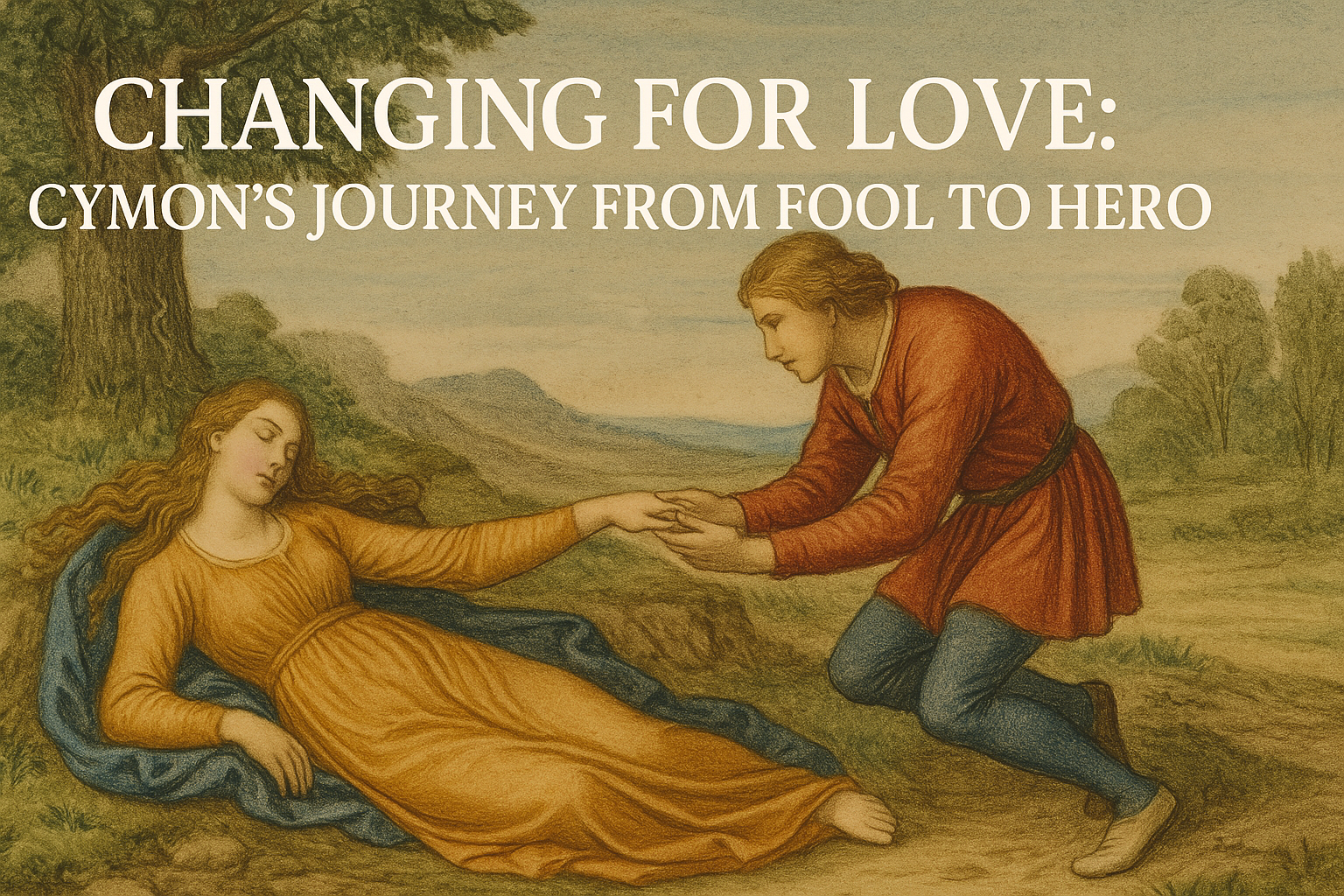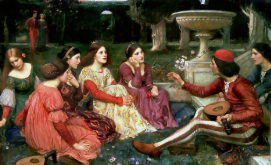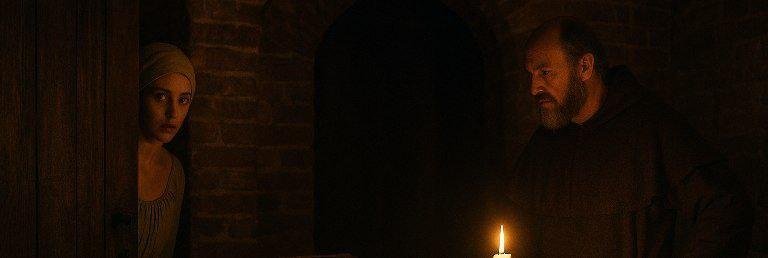Changing Love: Cymon's Journey From Fool To Hero

Changing for Love: Cymon’s Journey from Fool to Hero
INTRODUCTION:
In Day 5, Tale 1 of The Decameron, Pampinea shares the story of Cymon and Iphigenia a tale about love, transformation, and going against the grain. What really stands out is how Cymon, a man mocked for being simple and unrefined, completely changes because he falls in love. It’s a powerful example of how love can inspire someone to grow not just for someone else, but for themselves too. Even though the story was written hundreds of years ago, it still speaks to us today in ways that feel surprisingly modern.
SUMMARY:
The story starts with Cymon, who comes from a noble family but is considered too dull and wild to fit in with upper-class society. His family sends him away in embarrassment. One day, he happens upon a young woman named Iphigenia asleep in a meadow. She’s beautiful, and for some reason, seeing her changes everything for him. He becomes determined to improve himself he learns to speak better, dresses properly, and becomes more thoughtful all in the hope of being worthy of her. Later, when Iphigenia is set to marry someone else, Cymon, with help from his friend Lysimachus, interrupts the wedding, kidnaps her, and eventually wins not just her heart but the approval of society.
ANALYSIS:
This story centers around the idea that love can completely reshape a person. Cymon starts off as a man nobody takes seriously. But falling in love wakes something up in him it pushes him to become smarter, more polite, more refined. His transformation suggests that people aren’t stuck with who they are; they can grow and change, especially when they care deeply about someone or something. Boccaccio, through this tale, seems to argue that real nobility isn’t about family status it’s about character and the choices we make. That kind of thinking was unusual for his time and hints at the beginnings of Renaissance ideas about individual potential.
What’s also interesting is how the tale challenges the social norms of the time. Iphigenia doesn’t get to choose who she marries her future is decided for her. Cymon and Lysimachus rebel against that by fighting for the women they love, even if it means breaking the law. Today, the idea of kidnapping someone for love would be deeply problematic, but back then, this kind of dramatic rescue was often seen as romantic. It reflects a clash between personal desire and the rigid rules of society something we still see in stories and relationships today.
Boccaccio uses contrast and irony to make the story more engaging. At the beginning, Cymon is the last person anyone would expect to become a hero. But by the end, he’s brave, confident, and successful. That flip in expectations keeps the story fresh and makes his transformation feel earned. Symbolically, his growth shows that love can be a kind of rebirth it helps him become the person he was meant to be. The tale is also full of energy, with just enough danger and risk to make it exciting.
PERSONAL RESPONSE:
Personally, I really enjoyed this tale. Cymon’s character was relatable in a way I didn’t expect. His motivation to change wasn’t just about impressing someone, but about becoming a better version of himself. That felt authentic. What I did wish, though, was that Iphigenia had more of a voice in the story. She’s central to the plot but doesn’t get much say in what happens to her. Still, the overall message and arc of the tale made it one of the most memorable stories I’ve read from The Decameron.
CONCLUSION:
In the end, this tale sticks with you because it taps into something we all understand: the hope that we can become better, and that love can help bring that out in us. It questions old ideas about class and status, and it shows that real change comes from within. Even now, in a world that’s very different from Boccaccio’s, Cymon’s journey feels familiar. It’s a reminder that love, courage, and personal growth never really go out of style.







